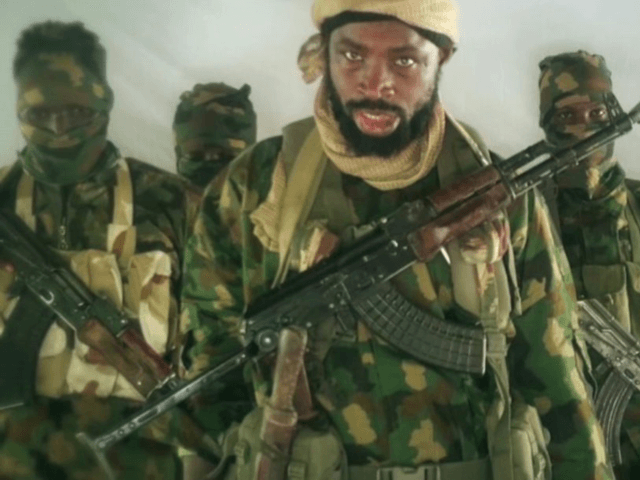The decade-long Boko Haram terror campaign in Nigeria “is far from over,” Doctors Without Borders declared on Monday.
The organization asserted that Boko Haram continues to wreak havoc in its birthplace of Nigeria more than ten years after it launched its insurgency in July 2009.
Known in most of the world by its French name — Médecins Sans Frontières (MSF) — the non-governmental organization (NGO) noted:
It has been 10 years since an insurgency began in northeast Nigeria, with armed opposition groups fighting the Nigerian army. A decade on, the conflict is far from over and civilians are caught in the middle. People continue to be forced from their homes by the violence and many displaced families now live in camps either operated by the state authorities or informally set up alongside local communities.
The majority of the displaced are women and children who are heavily depending on humanitarian assistance for survival. … Since 2009, increasing levels of insecurity and forced displacement in Borno have continued to disrupt people’s lives.
Boko Haram originated in northeastern Nigeria’s Borno State.
MSF’s assessment of the ongoing insurgency came a few days after Nigerian President Muhammadu Buhari’s administration insisted that Boko Haram “is defeated.”
The comments from the Buhari administration were reportedly part of its review of the violent terrorist group’s decade-long insurgency.
President Buhari has falsely claimed victory over Boko Haram several times since taking office in 2015.
Since their uprising in 2009, Boko Haram jihadis have swept across Nigeria, the most populous democracy in Africa, leaving a trail of death and devastation in their wake.
Nigeria’s war against Boko Haram has killed nearly 36,000 people, according to a tally by the Council on Foreign Relations (CFR) last updated at the beginning of August.
Under President Buhari alone, the anti-Boko Haram war has killed more than 23,000 people.
MSF estimated that the terrorist group has also displaced nearly two million people.
The NGO acknowledged that it was slow to respond to the humanitarian crisis fueled by Boko Haram. MSF began responding to the crisis in 2014, about five years after Boko Haram’s insurgency began.
“Although the amount of humanitarian aid has increased in the past few years, gaps in support for displaced communities have not been adequately addressed,” MSF reported. “Many areas of Borno remain very insecure today, which makes providing assistance difficult.”
The humanitarian medical group pointed out that it is only able to access areas controlled by the Nigerian military.
Local troops have largely pushed Boko Haram into northeastern Nigeria, particularly in and around Borno where it remains a significant threat.
“At present, terrorist activities have been confined to the remote, rural agrarian areas of Borno State and pockets of outrages in Adamawa, and Yobe States,” Garba Shehu, a spokesman for Buhari, conceded at the end of July.
The Buhari administration now attributes Nigeria’s deteriorating security conditions to the Islamic State (ISIS/ISIL) West Africa Province (ISWAP), a Boko Haram offshoot.
ISWAP allegedly broke its ties to Boko Haram in 2016, but it appears both groups still consist of some of the same fighters.
According to MSF, “hundreds of thousands” of Nigerians remain dependent on humanitarian aid to survive.
While avoiding direct engagement in military operations in Nigeria, the U.S. provides support to the Multinational Joint Task Force (MJFT) fighting Boko Haram.
Furthermore, the U.S. has allocated hundreds of millions in foreign aid to Nigeria in recent years, including $851 million in 2017 alone.

COMMENTS
Please let us know if you're having issues with commenting.